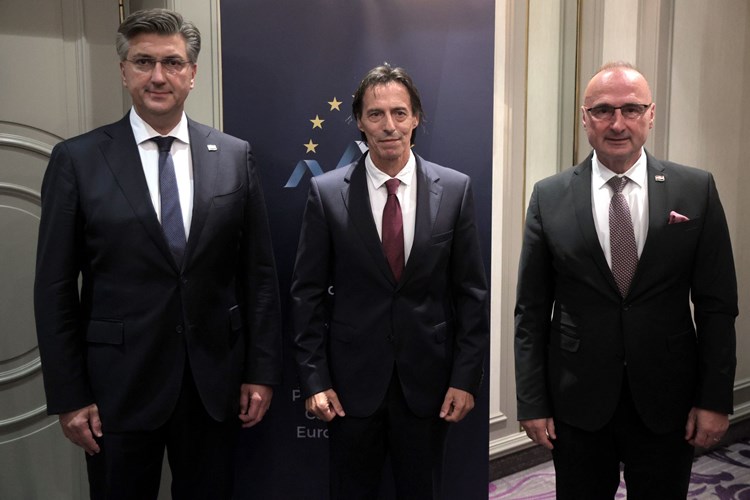- Published: 01.10.2021.
Minister Grlić Radman with EU ambassadors: Situation in BiH known too little
Minister Grlić Radman with EU ambassadors: Situation in BiH known too little
Foreign Minister Gordan Grlić Radman said on Friday that the situation in Bosnia and Herzegovina, its history and multiethnic character, were known too little.
Grlić Radman was speaking to reporters after attending a meeting with EU ambassadors at the Sheraton Hotel in Zagreb on the occasion of the Slovenian presidency of the European Union.
He said that Prime Minister Andrej Plenković had spoken about Bosnia and Herzegovina and indicated that more attention should be dedicated to that country.
"We have a feeling that there is not enough knowledge of its history, circumstances and multiethnic character," the foreign minister said, adding that the ambassadors "showed a great interest" in Bosnia and Herzegovina.
Grlić Radman said that he did not have all the information about US envoy Matthew Palmer's proposal to remove "ethnic prefixes" in the election of members of Bosnia and Herzegovina's tripartite presidency, which has been rejected by representatives of all three constituent peoples.
"We support any activity aimed at changing electoral law based on the principles of equal rights and equality. We want to make our contribution, but we also want to leave it for the leaders of the three peoples to decide on their own future," Grlić Radman said.
Croatia and the Bosnian Croat leaders are calling for amending Bosnia and Herzegovina's electoral law before the election in 2022 to prevent the current practice of more numerous Bosniaks choosing a Croat member of the country's presidency and members of the upper house of the parliament of the Bosniak-Croat Federation entity.
Grlić Radman reiterated that Croatia wanted the future electoral law to ensure that "each people chooses its own legitimate representative." He said that the new law should ensure equal status and eliminate any form of inequality and discrimination.
The meeting also discussed the prospects of European strategic autonomy, the path of Western Balkan countries towards the European Union, the situation in Afghanistan, and the political situation in Croatia.
Text: Hina/MFEA



